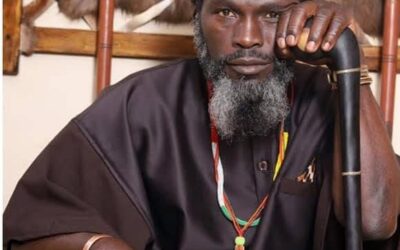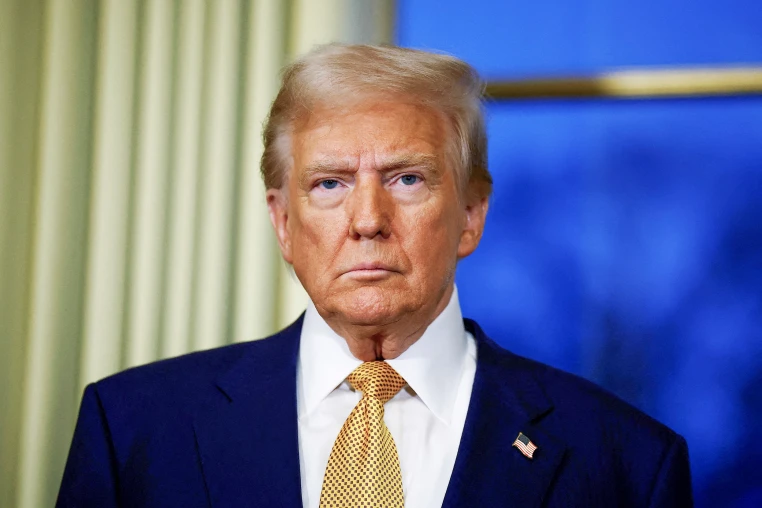By Bafana Phalane
Donald Trump’s potential second term could have significant implications for Africa, shaped by his foreign policy priorities and approach to global relations. While his first term provided some insight into how he views the continent, it also raised concerns about what a return to the White House would mean for Africa’s economic, political, and diplomatic engagements.
During his first term, Trump showed limited interest in Africa, primarily viewing the continent through the lens of economic transactions. His administration placed less emphasis on development aid and multilateral partnerships, focusing instead on bilateral trade agreements. While initiatives like the “Prosper Africa” program were introduced, they lacked substantial funding or clear strategies to boost U.S.-Africa economic ties.
A second term might see further disengagement from Africa as Trump continues to prioritize “America First” policies. Trade agreements under the African Growth and Opportunity Act (AGOA) could face uncertainty, as Trump’s administration might seek to renegotiate or impose stricter terms to favour American businesses. Additionally, his protectionist stance could limit Africa’s access to U.S. markets.
Africa is increasingly becoming a focal point for geopolitical competition, particularly between China, Russia, and Western powers. While Trump’s first term saw limited action in countering China’s dominance on the continent, his rhetoric frequently criticized Beijing’s growing influence. In a second term, his administration might pressure African nations to align with U.S. interests, potentially creating friction for countries that rely heavily on Chinese investments or Russian military cooperation.
Such a confrontational approach could limit Africa’s ability to balance its relationships with major global powers, forcing nations to choose sides in a way that may undermine their development goals.
Trump’s first term involved the drawdown of U.S. troops in Africa and reduced engagement in counterterrorism operations, reflecting his broader focus on reducing America’s military footprint abroad. However, Africa remains a hotspot for extremist groups like Boko Haram, al-Shabaab, and ISIS affiliates, which threaten regional stability.
A second Trump term might bring conditional U.S. support for counterterrorism, focusing on outcomes favourable to American interests. African nations could face increased pressure to shoulder more of the financial and operational burden in these efforts, potentially leaving gaps in regional security frameworks.
Trump’s policies on immigration and his rhetoric about African nations have often been divisive. During his first term, he infamously referred to some African countries in derogatory terms (shit holes), sparking outrage across the continent. His administration also imposed travel bans that disproportionately affected African nations like Nigeria, Eritrea, and Sudan.
In a second term, stricter immigration policies could further strain relations with the African diaspora, a vital bridge for trade, investment, and cultural exchange. African students and professionals seeking opportunities in the U.S. may also face increased barriers, reducing the flow of talent and knowledge between the continents.
Trump’s skepticism about climate change and withdrawal from international agreements like the Paris Climate Accord during his first term signaled a lack of commitment to global environmental issues. This stance could adversely impact African nations, many of which are on the front lines of climate change and rely on international funding for adaptation and mitigation efforts.
Development aid and health initiatives, such as those tackling HIV/AIDS and malaria, could also see reductions, given Trump’s preference for cutting foreign assistance programs. This would place additional strain on already vulnerable health and infrastructure systems in some African countries such as Zimbabwe and a few others.
Perhaps most concerning is Trump’s apparent lack of a cohesive vision for Africa. While previous administrations, including those of George W. Bush and Barack Obama, made significant investments in African health, education, and infrastructure, Trump’s first term marked a sharp decline in high-level engagement with African leaders. A second term might reinforce this trend, relegating Africa to a lower priority in U.S. foreign policy.
Trump’s apparent lack of a cohesive vision for Africa is concerning. While previous administrations made significant investments in African health, education, and infrastructure, Trump’s first term marked a sharp decline in high-level engagement with African leaders.
It’s also worth noting that despite Trump’s initial appearance of being against war and critical of Israel’s behaviour, his actions as president have told a different story. For instance, he lifted sanctions on violent Israeli settlers, which has been a point of contention. This inconsistency raises questions about his true commitment to promoting peace and justice in the region.
Donald Trump has made his stance on BRICS clear, particularly when it comes to their efforts to reduce the US dollar’s dominance in global trade. On his first day in office, Trump warned BRICS nations that pursuing de-dollarisation would result in a 100% tariff on trade with the United States. He emphasized that countries exploring alternatives to the dollar, such as Russia and China, would face severe economic consequences.
This stern warning has significant implications for Africa, as many countries on the continent have been strengthening economic ties with BRICS nations, particularly China. A trade war sparked by de-dollarisation efforts could disrupt Africa’s access to Chinese markets, technology, and investment, potentially hindering the continent’s economic development and diversification efforts. Furthermore, an increase in tariffs could lead to higher prices for African consumers and reduced competitiveness for African exports, ultimately exacerbating poverty and inequality.
A second Trump presidency could bring increased uncertainty for Africa, marked by reduced economic engagement, limited development aid, and heightened geopolitical competition. African leaders may need to deepen regional integration, diversify partnerships, and strengthen their voices in multilateral forums to mitigate the potential fallout of Trump’s second term
Bafana Phalane: Editor & Founder @ Maverick Point








13 thoughts on “Trump’s Return: What Does it Mean for Africa.”